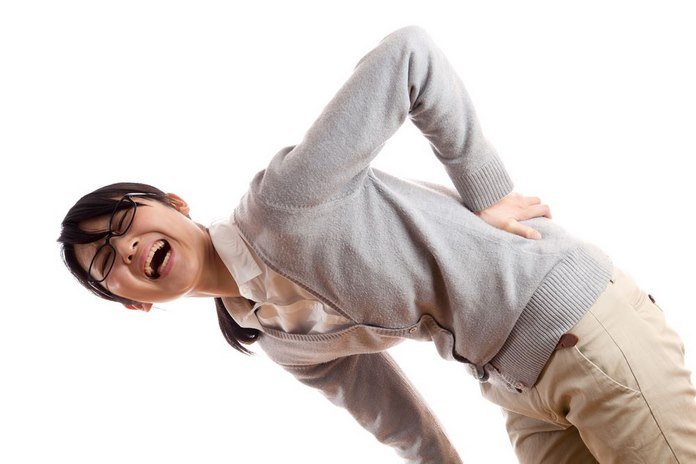Symptoms of Herniated Discs
Research studies and clinical trials where the routine back and neck scans have been done on a large number of patients have shown that some individuals have a slipped disc without any apparent symptoms. It is thought that classic symptoms mainly occur if the herniation irritates or puts pressure on a nerve. This does not happen in all cases. Some disc herniations may be small, or develop away from the nerve roots and cause no or minor symptoms.
Back pain

The pain in the back is often severe and usually comes on suddenly. It is usually eased by lying still and is often aggravated by movements of your back, or with coughing or sneezing.
The intensity of the back pain depends on the extent of a herniated disc, i.e., bigger the herniation, more will be the pain.
One sign may be the location of the pain. Although pain can develop in any part of your spine, herniated disks most commonly occur in the lumbar spine (lower part of your backbone), just above your hips. This pain can also radiate from your back to your buttocks, thighs, calves, to even your ankles.

